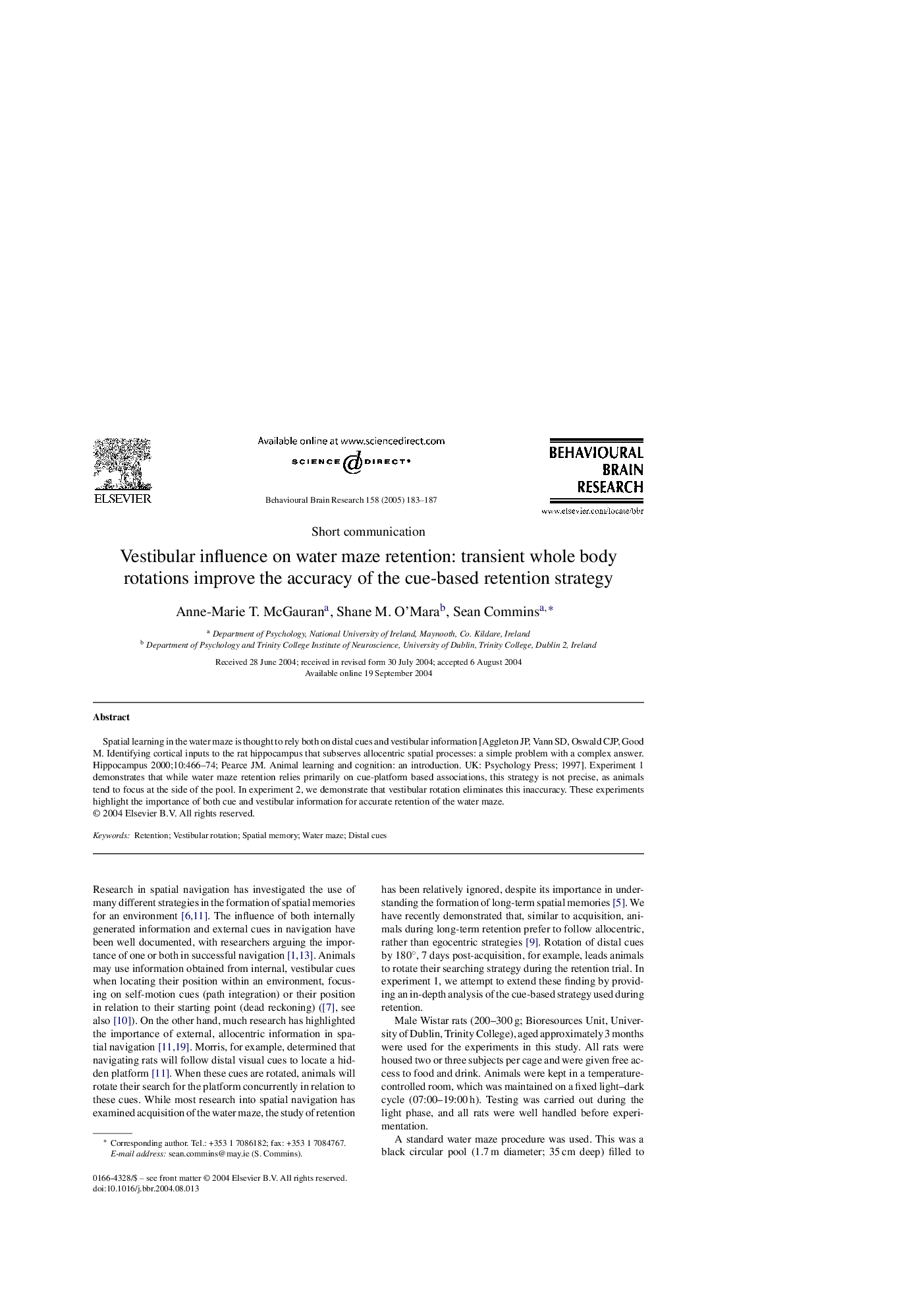| Article ID | Journal | Published Year | Pages | File Type |
|---|---|---|---|---|
| 9406694 | Behavioural Brain Research | 2005 | 5 Pages |
Abstract
Spatial learning in the water maze is thought to rely both on distal cues and vestibular information [Aggleton JP, Vann SD, Oswald CJP, Good M. Identifying cortical inputs to the rat hippocampus that subserves allocentric spatial processes: a simple problem with a complex answer. Hippocampus 2000;10:466-74; Pearce JM. Animal learning and cognition: an introduction. UK: Psychology Press; 1997]. Experiment 1 demonstrates that while water maze retention relies primarily on cue-platform based associations, this strategy is not precise, as animals tend to focus at the side of the pool. In experiment 2, we demonstrate that vestibular rotation eliminates this inaccuracy. These experiments highlight the importance of both cue and vestibular information for accurate retention of the water maze.
Keywords
Related Topics
Life Sciences
Neuroscience
Behavioral Neuroscience
Authors
Anne-Marie T. McGauran, Shane M. O'Mara, Sean Commins,
